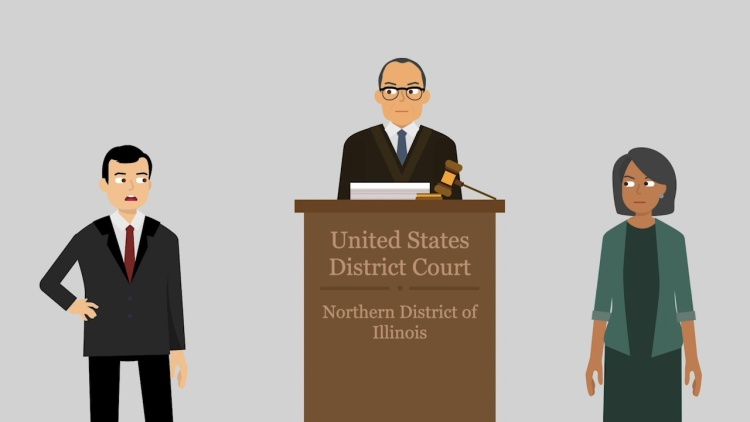Schoot v. United States
United States District Court for the Northern District of Illinois
664 F. Supp. 293 (1987)

- Written by Denise McGimsey, JD
Facts
Vorbau was president of Steelograph Business Interiors, Inc. (Steelograph), a company incorporated and headquartered in Illinois. Schoot (plaintiff) was employed by Steelograph to perform ministerial tasks at Vorbau’s direction. Schoot had no authority over Steelograph’s business decisions, including the payment of taxes. The United States (Government) (defendant) assessed a $47,194.53 penalty upon Vorbau and Schoot, who were deemed jointly and severally liable, for the willful nonpayment of withholding and Federal Insurance Contributions Act taxes owed by Steelograph. Schoot paid $500 of the assessment; Vorbau paid nothing. Vorbau eventually moved out of Illinois. Schoot filed a lawsuit against the Government in the United States District Court for the Northern District of Illinois, which was the district in which Schoot resided, seeking to recover under 28 U.S.C. § 1346(a)(1) taxes and interest improperly assessed and/or collected. The Government filed a compulsory counterclaim against Schoot for nonpayment of the balance owed and, by leave of court, added Vorbau as a third-party defendant to the counterclaim. Vorbau moved to dismiss the Government’s claim against him on the grounds of lack of jurisdiction, improper venue, and improper joinder.
Rule of Law
Issue
Holding and Reasoning (Aspen, J.)
What to do next…
Here's why 907,000 law students have relied on our case briefs:
- Written by law professors and practitioners, not other law students. 47,100 briefs, keyed to 996 casebooks. Top-notch customer support.
- The right amount of information, includes the facts, issues, rule of law, holding and reasoning, and any concurrences and dissents.
- Access in your classes, works on your mobile and tablet. Massive library of related video lessons and high quality multiple-choice questions.
- Easy to use, uniform format for every case brief. Written in plain English, not in legalese. Our briefs summarize and simplify; they don’t just repeat the court’s language.








